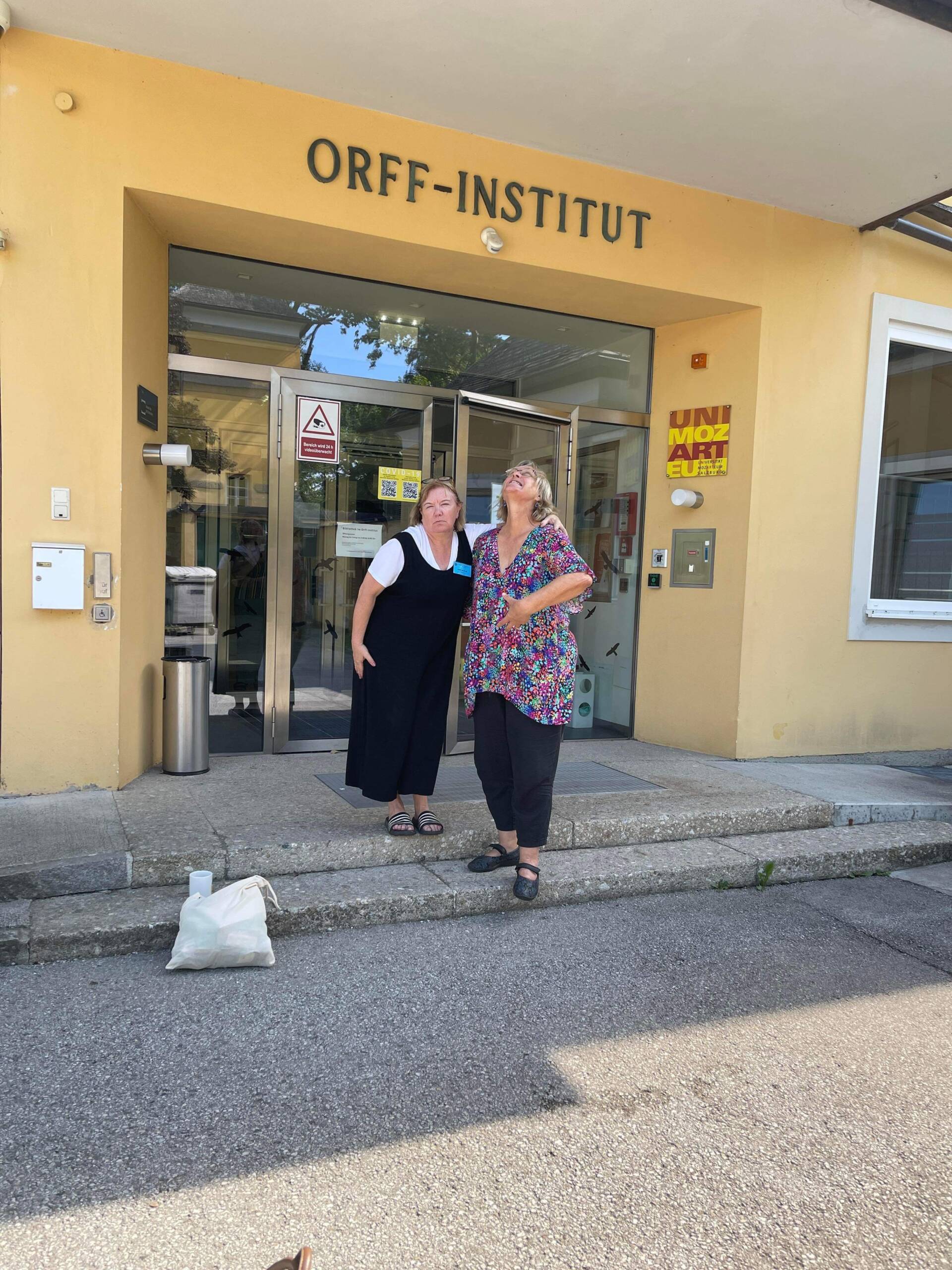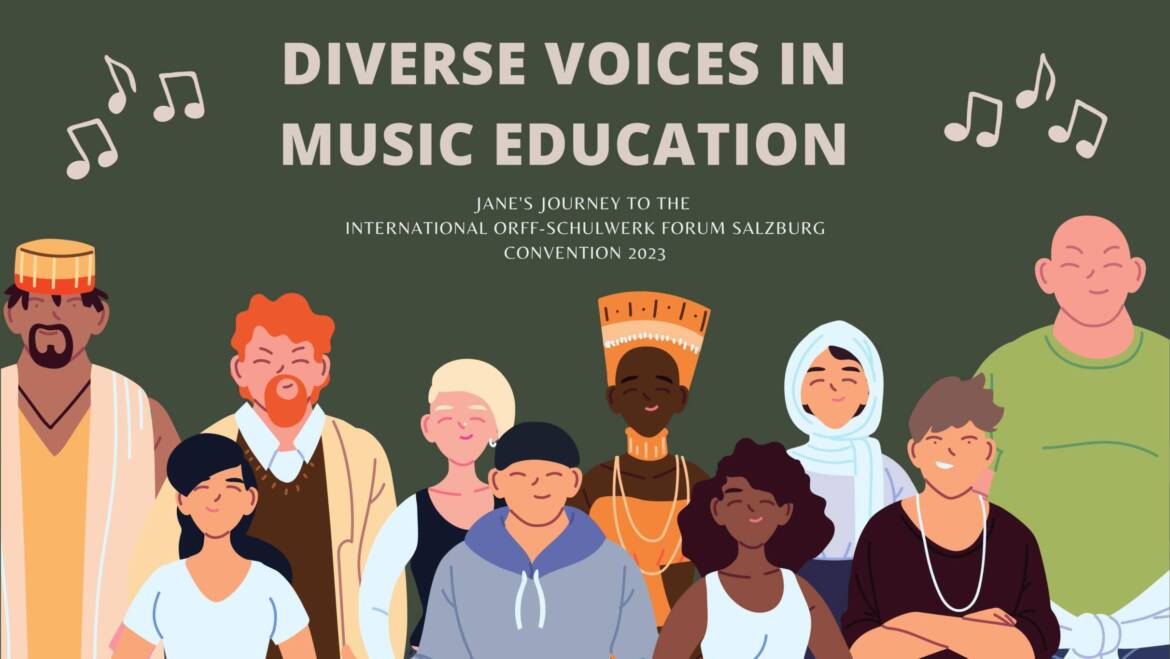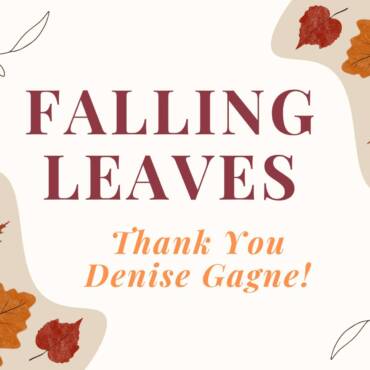In early Term Three, Jane Nicholas – a passionate Orff-Schulwerk music educator and advocate for sharing culture, diversity and knowledge of our First Nations peoples in Music Education – was invited to share her experiences and perspective of diversity in the music classroom at the 2023 IOSFS Convention.
This is Jane’s reflection on her journey to Salzburg, the home of Orff-Schulwerk.
Diverse Voices In Music Education
A Reflection by Jane Nicholas on the experience of the International Orff Schulwerk Forum Salzburg Convention 2023
The International Orff Schulwerk Forum’s Convention In Salzburg in July saw seventy music educators presenting and exploring ideas on the theme of hearing and expressing diverse voices. Before, during and since the convention the concepts of diversity, voice and power have been considered as possible futures, but possibly existing only as fantasy futures. The convention challenged participants, challenging their current paradigm.
The aim of the convention was to bring together a range of international practitioners to explore, challenge and reimagine the ideas and experiences when creating inclusive andequitable conditions for music and dance education. Using concurrent in- person and online methods of presentation the idea of voices, participation and power were challenged through keynotes, workshops, discussion groups, performances and Come Togethers, which were whole group ‘musiking’ sessions. Could there be a positive future where diverse voices would be allowed for and considered in societies? Of course Arts education would assist with this new world order was my pre-exisiting view.
The Convention was held at the Orff Institute at the University Mozarteum which was established by Carl Orff in 1961 as a centre for elemental music and dance education.
At the heart of the Orff approach is the embracing of diversity and celebrating inclusion. Its ‘elemental’ starting point means that everyone will be included meaningfully in making and responding to music. The artistry with the Orff practice allows for educators to creatively achieve this with all ‘students’.
The keynote presentations provoked music educators to reflect on multilingualism, dance, as well as race and representation. Discussion groups followed each of the key notes where concepts, deeply personal reflections and practical experiences were shared. These keynotes brought out strong opinions that challenged societies accepting greater diversity. A range of views were not accepted as kindly as I had hoped. An example from the convention was where one of the presenters shared their ideas. These seemed to be shut down in the discussion I attended. I felt this flew in the face of music and other creative arts which should thrive in challenging the existing and creating the new. Perhaps my vision and optimism of a diverse cultural society brought together by shared musical experiences was not a universally achievable ideal? With respect to the ’diverse voices’ theme of the convention this was a disappointment to me. To hear and experience the reluctance to accept other concepts and ideas, and a rigidity in maintaining the status quo was deflating. I found it troubling to be present with creative arts educators who did not allow the existing ideas, systems and methods to be challenged and were defending the stance of the dominant culture. I hope it was the experience only in the discussion groups I attended.
The range of workshops were outstanding. One of my favourites included Marion Haak-Schulenburg. Marion is a community musician, singer and music teacher. After studying school music at the Berlin University of the Arts, she worked as a choir director and music teacher, choral conductor, workshop leader, vocal coach and lecturer. Since 2016 she has been a trainer for Musicians without Borders (NL). As part of a doctorate, she is researching “Inclusive Music Education / Community Music“. She shared her work as a community musician with Palestinian youth. Her music making activity was stunning. It grew organically from a provocation of silence, breath, choosing a melodic and non-melodic instrument to create a loose composition. Out of silence, her suggested structure of making musical conversations, first with non-melodic percussion, then melodic and then back to non-melodic was simple but so emotional. The dynamics and playfulness joyful.
Another favourite workshop was by Christine Schonherr. Christine Schönherr studied Music Education for Schools, Rhythmics (J.Dalcroze) and Recorder at the Hamburg University of Music and Theatre, as well as Elemental Music and Dance Pedagogy at the Carl Orff Institute Mozarteum University in Salzburg. For many years, she has been teaching at the Orff Institute Ensemble and Improvisation on Orff-Instruments, Dance Accompaniment, Recorder, Conducting, Speech Training and Speech Formation and Didactics. She is also a qualified Yoga and authorised AAP teacher. She has numerous publications such as the book “Körpersprache und Stimme” (body language and voice) and is teaching nationally and internationally. Since 2003 her focus has been on the field of music and dance for adults, the elderly and persons of advanced age, who live in nursing homes. The Austrian music educator presented on the artistic and pedagogical opportunities for people in advanced age. Her work clearly shows how important great music teaching can be for us all, throughout our lives. Her elemental teaching, links with nature, the importance of movement, creative genius, stimulated all in attendance.
The workshops by Christine and Marion put me back in touch with my people and my pedagogical home. My diverse voice world was puzzling back together.
Two presenters at the convention were from Australia, myself and Mary Walton. Mary is a well known music educator in Australia and very well known to WAOSA. She is the founder and principal of Eton Farm Primary School, the only Australasian Orff Associated school. Mary presented about the formation and initial experiences of the school, the board, the staff and students. It was a testament to the power of belief and the bringing together of people to make something new and dynamic and good. I have fond memories of sharing workshop experiences with Mary and the late Dr Richard Gill who was such an advocate for the Orff Schulwerk approach. He would be very proud of Mary’s work and achievement. She demonstrated how important Music Education, Art, Language and Outdoor Education underpin educational experiences at her school. Mary spoke about the Music Education program at Eton Farm Primary is based on Orff Schulwerk which provides a strong foundation in English, as it focuses on oral language, developing and enhancing early literacy skills. She showed beautiful integrated Arts learning experiences on the topic of animal migration.


The other Australian presentation was by myself, music teacher at Baldivis Gardens Primary School. I had been invited by a Czech music educator who I had met and shared music making with at an ISME Music in Schools and Teacher Education Commission in Prague in 2018. We had stayed in touch and she wanted my work with First Nations Australian culture and music shared at the convention as it fitted with the theme. It was a humbling and daunting task in terms of confidence and intellectual rigor, but the opportunity of a lifetime so I accepted. I am so grateful for the generous financial support of professional associations which supported my attendance.
The opportunity to present in person was invaluable in comparison to the online alternative. I particularly wish to thank WAOSA and ANCOS for their support. My workshop consisted of some examples of using Australian First Nations culture and music in mainstream music classroom settings. These examples have been built from experiences and learnings gained over many years where I have been exploring concepts and developing connections with, and support of, First Nations community members. I hope I will have the opportunity in the future to present this workshop to WAOSA members.
The ’Come Togethers’ showcased the most sublime and creative music teaching I have experienced. These shared vocal, movement and instrumental experiences were deeply artistic and connecting. They included improvisation and layers upon layers of beauty around the themes of ‘joyful moments’, ‘togetherness’, ‘beauty in difference’, and ‘voices’. I hope to be able to present some of these concepts through workshops in the future. My beautiful vision of diverse voices in society, while not always perfect, can be a future. As a society we need to do a lot more listening, share music and listen. We need to ‘Come Together.’

Jane ‘coming together’ with the Czech Orff-Schulwerk Association to gift them a book from Australia.



